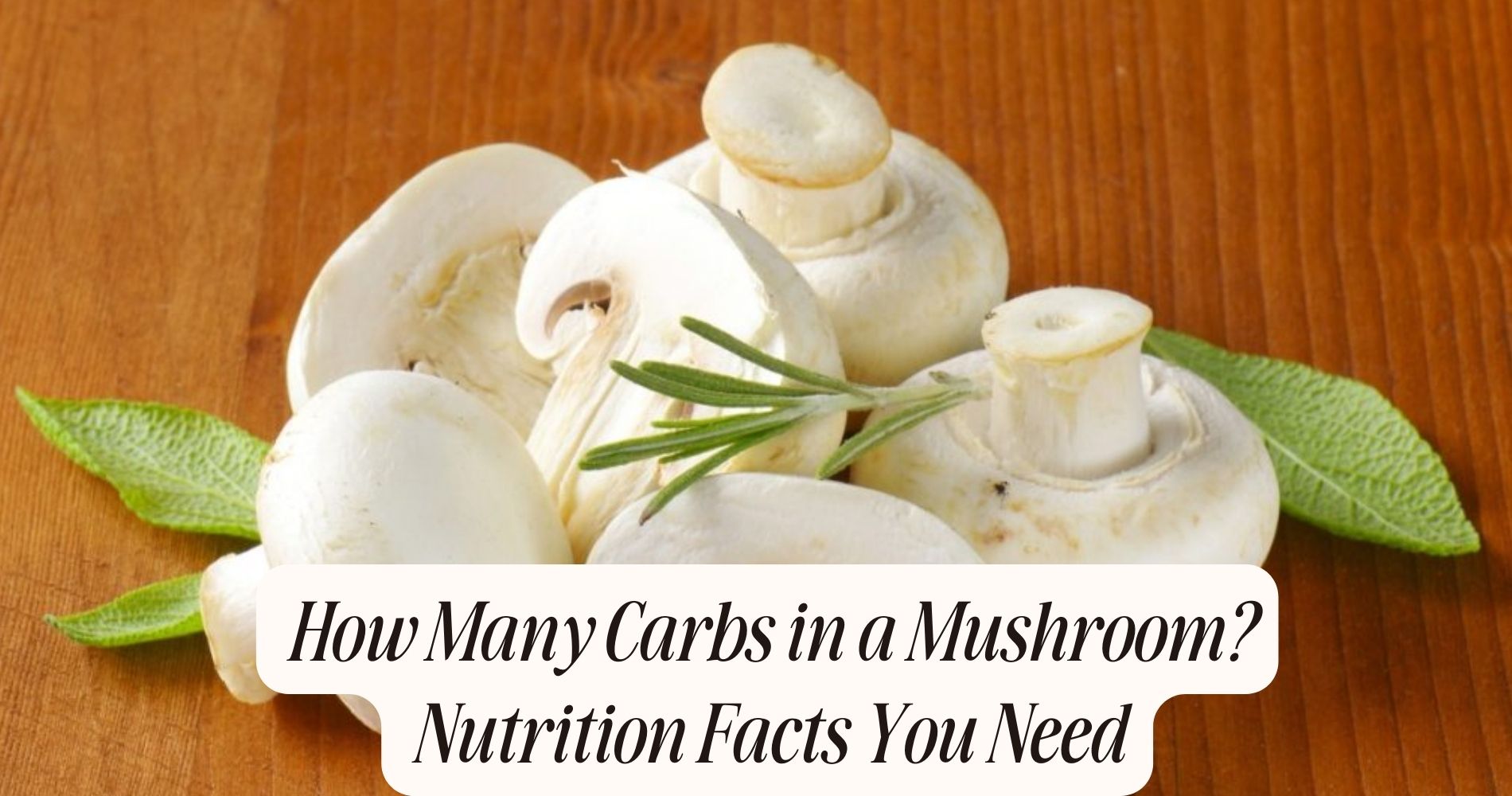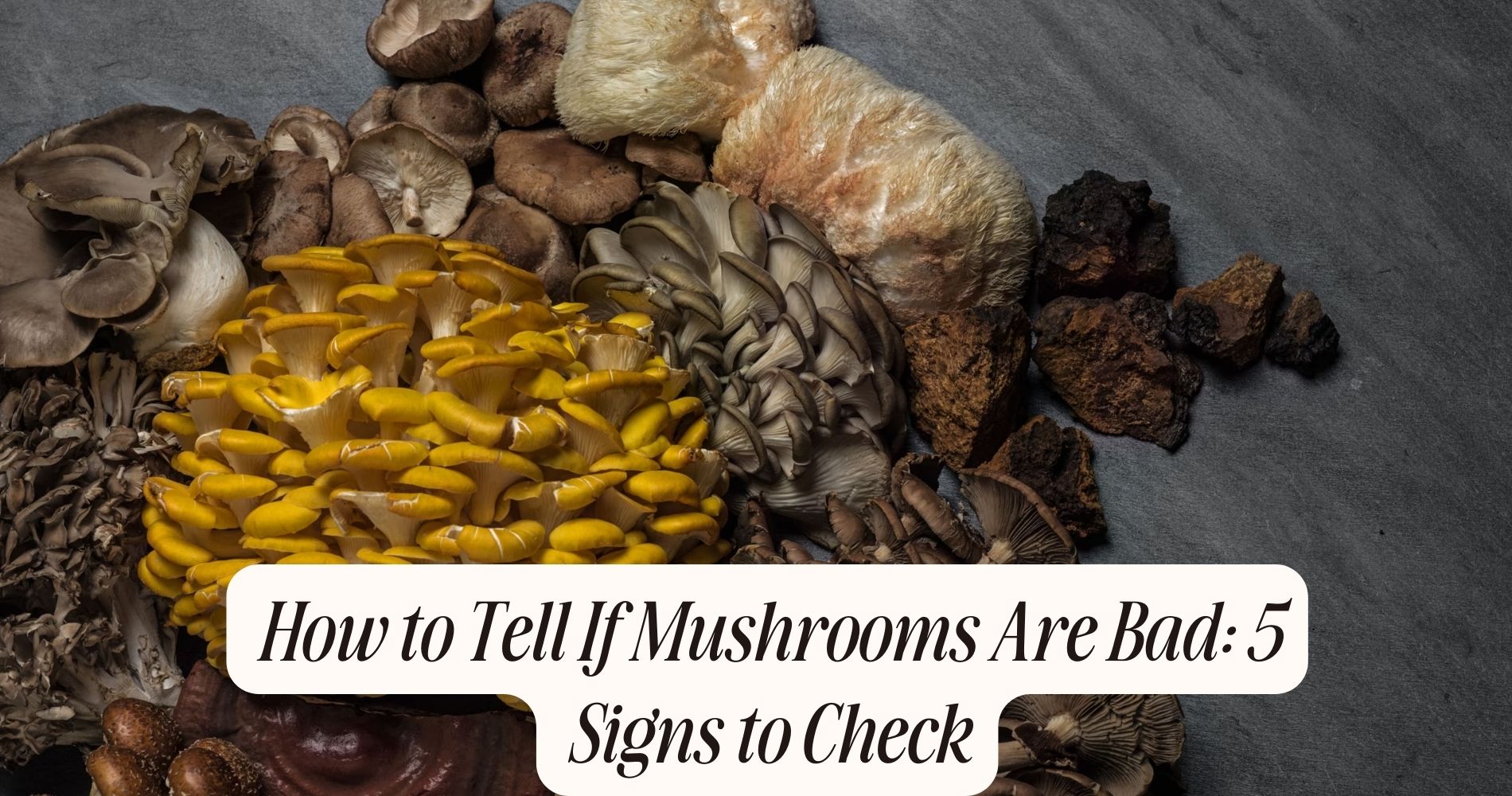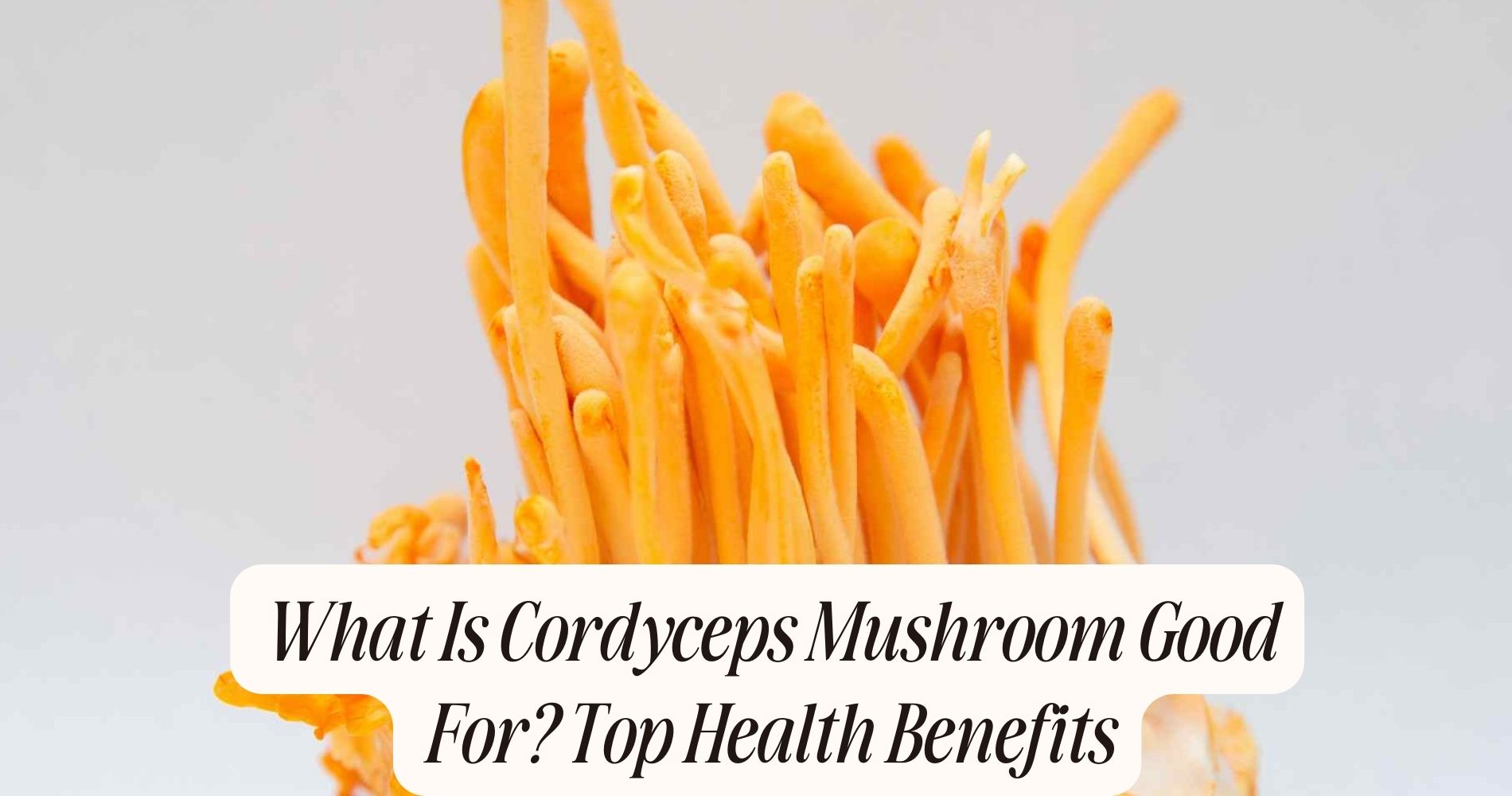
How Many Carbs in a Mushroom? Nutrition Facts You Need
How many carbs in a mushroom? Most common mushroom varieties are low in carbohydrates. White button mushrooms contain about 3.26 grams per 100 grams, while portobellos have around 3.87 grams, and shiitake mushrooms offer approximately 6.79 grams. These mushrooms are not only low in carbs but also pack antioxidants, beta-glucans, and B vitamins, making them a nutritious choice for your diet. Their rich nutrient profile supports health-conscious eating. There's more to discover about integrating mushrooms into your meals in an effective way.
Carbohydrate Content in Common Mushroom Varieties
When evaluating the carbohydrate content in common mushroom varieties, it's vital to examine each type's nutritional profile.
You'll find that carbohydrate differences exist among various mushrooms. For instance, white button mushrooms typically contain around 3.26 grams of carbohydrates per 100 grams. Portobello mushrooms, on the other hand, offer slightly less, with about 3.87 grams per 100 grams.

Shiitake mushrooms stand out with a higher carbohydrate content, approximately 6.79 grams per 100 grams.
These figures highlight the significance of selecting the right mushroom type based on your dietary needs. Each variety brings a unique carbohydrate profile, and it's important to take these differences into account when planning meals.
Understanding these variations can help you make informed dietary choices and manage your carbohydrate intake effectively.
Nutritional Benefits Beyond Carbs
While the carbohydrate content in mushrooms may vary, these fungi offer a wealth of nutritional benefits that extend beyond just carbs.
Mushrooms are rich in antioxidant properties, which help neutralize free radicals and reduce oxidative stress in your body. This can contribute to lowering the risk of chronic diseases such as cancer and heart disease.
Additionally, mushrooms are known for their immune support. They contain compounds like beta-glucans, which have been shown to enhance the activity of your immune system by stimulating macrophages and natural killer cells. These elements play a critical role in defending your body against pathogens.
Comparing Mushrooms to Other Low-Carb Foods
Although mushrooms are often celebrated for their unique flavors and culinary versatility, they also stand out nutritionally when compared to other low-carb foods.
Mushroom varieties like white button, shiitake, and portobello contain only 1-2 grams of carbohydrates per cup, making them excellent low carb alternatives.
When compared to other vegetables often touted for low-carb diets, such as zucchini or spinach, mushrooms offer a similar or even lower carb content while providing a different set of nutrients.

They're rich in B vitamins, selenium, and antioxidants, which you mightn't find in the same abundance in other low-carb vegetables.
This nutritional profile makes mushrooms not only a carb-friendly choice but also a nutrient-dense option, supporting a balanced and health-conscious diet.
Integrating Mushrooms Into Your Diet Plan
To seamlessly integrate mushrooms into your diet plan, begin by recognizing their versatility across various cuisines and meals. Mushrooms are low in carbs but rich in nutrients, making them ideal for meal planning.
Their adaptability allows you to incorporate them into a range of mushroom recipes—whether as a main dish, side, or garnish. Consider adding them to salads, soups, and stir-fries to boost flavor and nutrition without adding significant carbs.
Incorporate mushrooms into breakfast by including them in omelets or as a savory toast topping. For lunch and dinner, think of using them in wraps or as a meat substitute in burgers.
These strategies not only diversify your meal planning but also guarantee you're meeting dietary goals efficiently and deliciously.
Cooking Tips for Maximizing Mushroom Nutrition
Enhancing the nutritional benefits of mushrooms involves understanding and applying effective cooking techniques. Proper mushroom preparation is vital in preserving their nutrient content.
Start by gently cleaning mushrooms with a damp cloth instead of rinsing them under water to prevent nutrient loss. When considering cooking methods, sautéing is an excellent choice. Use a small amount of olive oil over medium heat to maintain their vitamins and minerals. Avoid overcooking, as this can degrade their nutritional value.

Steaming is another effective method, allowing mushrooms to retain their antioxidants and B-vitamins. Additionally, grilling mushrooms can enhance their savory flavor while preserving their essential nutrients.
Potential Health Considerations for Mushroom Consumption
When incorporating mushrooms into your diet, understanding potential health considerations guarantees you're making informed choices.
To begin with, be aware of mushroom allergies, which, although rare, can cause reactions like skin rashes, itching, or respiratory issues. If you experience any of these symptoms, consult a healthcare professional promptly.
Additionally, certain mushrooms contain compounds that may lead to digestive effects such as bloating or gas. These occur due to the high fiber content, which, while beneficial for gut health, can pose challenges for those with sensitive digestive systems.
To minimize these effects, consider gradually increasing your mushroom intake to allow your body to adjust.
Fuel Your Body with SUPER MUSHROOM GUMMIES
Looking for an easy way to enjoy the benefits of 10 powerful mushrooms? Well Gummies’ SUPER MUSHROOM GUMMIES make it simple! These convenient, chewable gummies provide a natural boost for brain function, energy, and immune support—without the hassle of powders or capsules. Infused with fresh wild berry flavor, they taste just like your favorite candy but with zero jitters or crashes. Whether you're managing carbs or just want an effortless way to enhance your wellness, these vegan-friendly gummies are the perfect solution. Try them today and experience the benefits!
Frequently Asked Questions
Are Mushrooms Considered a Vegetable or a Fungi?
You might think of mushrooms as vegetables, but they're actually classified as fungi. Despite this, their culinary uses often align with vegetables due to their texture and flavor, making them a versatile ingredient in many dishes.
Can Mushrooms Be Eaten Raw in Salads?
Yes, you can eat mushrooms raw in salads. Raw mushroom benefits include low calories and high fiber. Consider salad recipe ideas like combining them with spinach, nuts, and vinaigrette for a nutritious and delicious meal.
What Are the Environmental Benefits of Growing Mushrooms?
Growing mushrooms offers significant environmental benefits. You support sustainable farming practices by using agricultural waste as substrate. Mushrooms contribute to carbon sequestration, capturing carbon dioxide, and helping mitigate climate change, making them an eco-friendly choice for conscientious consumers.
How Do Mushrooms Affect Allergies and Sensitivities?
You may experience mushroom allergies or sensitivity reactions, which could manifest as rashes, digestive issues, or respiratory symptoms. It's important to consult a healthcare professional for an accurate diagnosis and personalized advice on managing these reactions.
Are There Any Psychoactive Effects in Common Mushrooms?
You might think common mushrooms have psychoactive properties, but that's a misconception. Scientific analysis shows typical culinary varieties like button or portobello don't produce psychoactive effects. Only specific mushrooms, not commonly consumed, have such properties.
Conclusion
Incorporating mushrooms into your diet offers numerous health benefits while keeping your carbohydrate intake low. With their rich nutrient profile, including vitamins, minerals, and antioxidants, mushrooms are a smart choice for those seeking a balanced diet. Compared to other low-carb foods, mushrooms provide unique flavors and versatility. By using proper cooking techniques, you can maximize their nutritional value. However, be mindful of potential allergies and consult with a healthcare professional if you have concerns about mushroom consumption.




